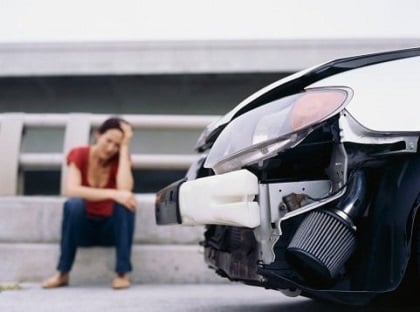How to Cope with Trauma After an Accident
How to Cope with Trauma After an Accident

According to the National Highway Traffic Safety Administration, in 2016 alone, there were an estimated 7,277,000 police reported traffic accidents in the United States. Most of the time, the initial concern has to do with any physical injuries for the people involved and getting help immediately. After the accident, when that initial shock has subsided, many fail to recognize how these accidents effect their emotional and mental health.
When asked if trauma has ever been experienced, many don’t consider the car accident they were in 5 years ago to be traumatic. This is because people occasionally assume trauma has to be something as significant as a death of a loved one or a natural disaster, but trauma is anything that is “deeply distressing or disturbing,” and that looks different for each individual. It’s important to remember that you don’t even necessarily have to be the driver in the accident for it to be traumatic, you can be the passenger or a bystander for it to have its effects on you.
Following an accident, many people can experience emotional distress. It’s normal that during the healing process, you may begin to notice signs of increased stress such as Post Traumatic Stress Disorder (PTSD), anxiety, depression, anguish, fearfulness, issues with sleep, reoccurring nightmares about the crash and more. These intense emotions can lead to avoidance. Some may avoid having to drive again by avoiding going to work, appointments, events, school, etc. due to fear of getting into another accident. When symptoms start getting in the way of day to day functioning it may be a sign to take action.
There a few suggested ways to work through and overcome these traumatic events. First, it’s important to increase self-care. When in distress or feeling anxious, it’s easy to neglect our basic needs such as getting enough sleep, eating balanced meals, implementing exercise into your schedule and staying social. When that isn’t enough, it’s important to seek professional help. A mental health provider can help you process the accident, help to reduce the anxiety and stress while also getting you back into your routine and helping you stay engaged. With help from friends, family, a mental health professional and a little exposure, it’s possible to work up to being able to drive again.
Remember, it’s important to focus on the things in your control when trying to cope with moving forward. Practice using good driving behaviors such as always wearing your seatbelt and minimize as many distractions as possible such as not driving when you’re too tired, not using your phone and not eating or drinking while driving. In addition, the Anxiety and Depression Association of America (ADAA) has additional resources such as educational materials, webinars, as well as a therapist finder to help you find a mental health professional in your area. You can also visit the National Center for PTSD to learn more about Post Traumatic Stress Disorder and find professionals who specialize in PTSD treatment.












